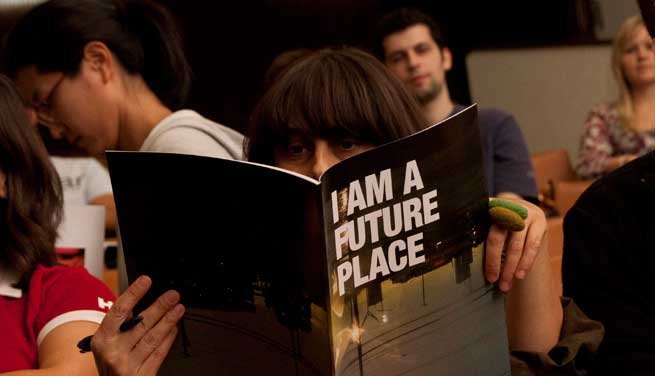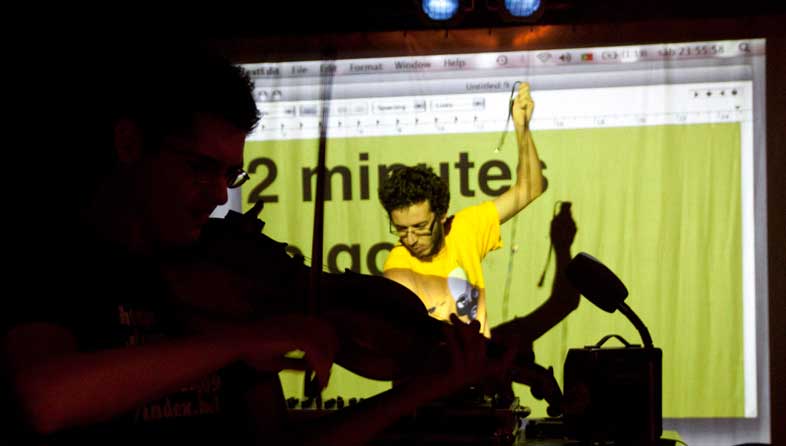Future Places ‘09: A Retrospective
Interdisciplinary research,
education and capacity building
1 Nov 2009
Second Annual Future Places Digital Media Festival
 The second annual Future Places digital media festival took place from October 13-17 in Porto, bringing participants from around the world and hosting a number of workshops, concerts and parties. Curated by Heitor Alvelos and Karen Gustafson, the festival addressed a wide range of aspects of digital media, all converging on a key question: how can digital media contribute to the development and enhancement of local cultures? Workshops focused on computer vision, interface design for mobile devices, location aware narrative production, and mobile audio recording and performance. A concert by the sound artist Marc
The second annual Future Places digital media festival took place from October 13-17 in Porto, bringing participants from around the world and hosting a number of workshops, concerts and parties. Curated by Heitor Alvelos and Karen Gustafson, the festival addressed a wide range of aspects of digital media, all converging on a key question: how can digital media contribute to the development and enhancement of local cultures? Workshops focused on computer vision, interface design for mobile devices, location aware narrative production, and mobile audio recording and performance. A concert by the sound artist Marc  Behrens opened the festival at Porto’s world-renowned Casa da Música, where Behrens manipulated his field recordings of the Amazon rainforest to create an engrossing virtual sonic environment.
Behrens opened the festival at Porto’s world-renowned Casa da Música, where Behrens manipulated his field recordings of the Amazon rainforest to create an engrossing virtual sonic environment.
The festival included a worldwide competition of media work by fifteen finalists, exhibited at Maus Hábitos, a popular cultural space and club. The jury was comprised of Hugh Forrest, director of Austin’s famous South by Southwest Interactive festival; Cristina Sá, teacher and researcher at Universidade Católica Portuguesa and Universidade Nova de Lisboa; and University of Texas documentarian Karen Kocher.
First prize was awarded to Brian Cohen and his team at TRAX Arts, an arts company based in Melbourne, Australia. Cohen’s team presented “Outhouse”, a participatory installation resembling a semi-private confessional booth. Second prize went to “Oporto-Brooklyn Bridge”, an interactive sound installation created by New York-based artists Naomi Kaly and Alyssa Casey. Finally, honorable mentions went to Hye Yeon Nam from Georgia Institute of Technology, for her video on cultural assimilation, “Wonderland,” and André Carrilho and Nuno Correia from Video Jack, for their dynamic sound and video performance “Master and Margarita.”
Additionally, a full schedule of diverse scholarly, social and creative activities included a day of academic papers at University of Porto’s Reitoria, an exclusive radio station broadcasting 24/7, a concert of experimental music by student composers at Casa da Música, sessions dedicated to research in progress, a sound seminar by Touch headmaster Jon Wozencroft, and a semi-improvised performance at STOP, an underground cooperative music venue and home to over 100 Porto bands.
Close to twenty universities were present among the various activities. Future Places 2008 proceedings were launched as well as the 7” single recorded at STOP at last year´s edition. Future Places fostered a great deal of social networking as artists and scholars from around the world reinforced existing relationships and forged new ties, contributing to the festival’s great success.
More information can be accessed at futureplaces.org.

 News
News
